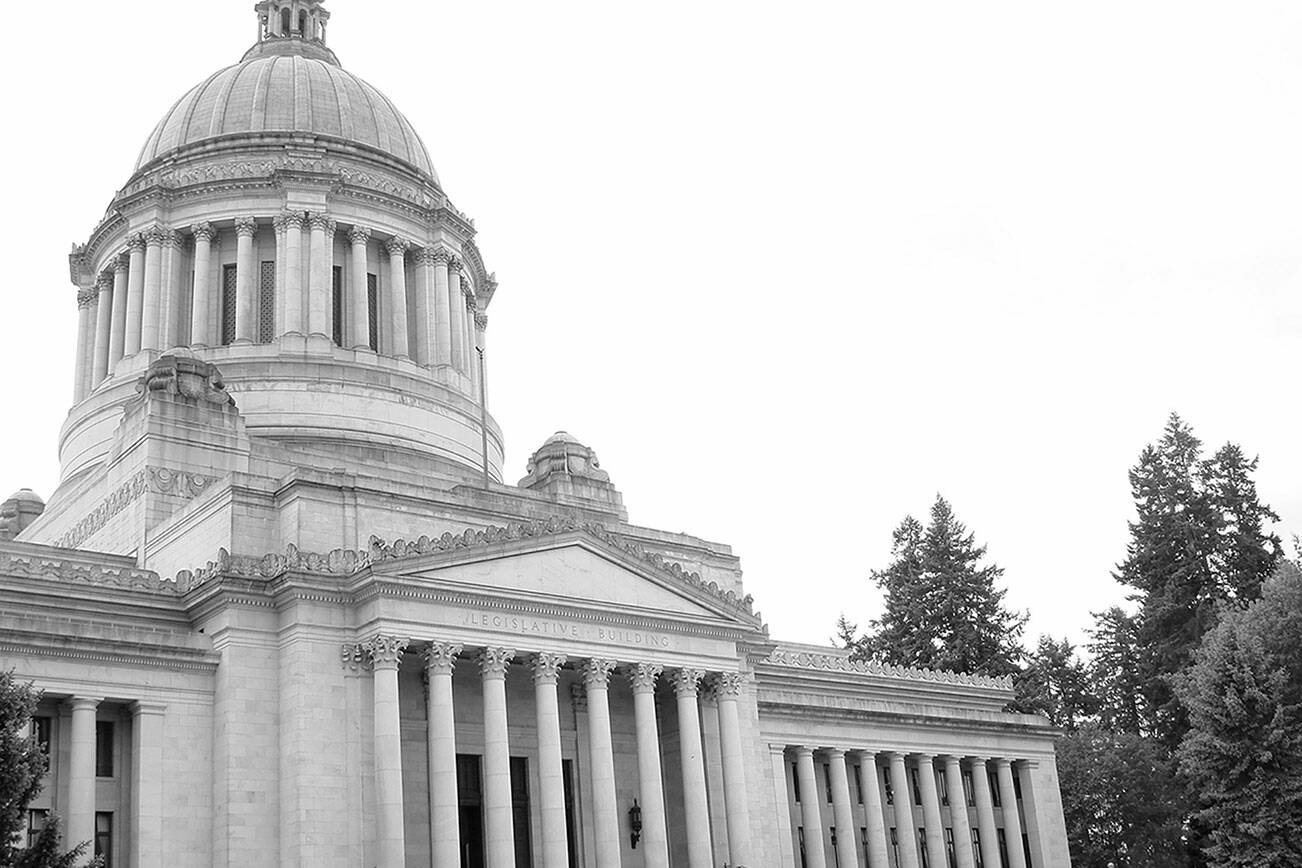OLYMPIA, March 11 — Another legislative session is in the books after a testy final night during which lawmakers flirted with a special session.
There were surprises, too.
Who foresaw Senate Democrats killing the police-pursuit bill?
It passed the Senate 31-18 a month ago and the House 86-12 a week ago. But remember, all those “no” votes in the Senate came from Democrats. Since the House tweaked the bill, the Senate needed to concur on Thursday.
When it arrived, it no longer had enough support in the caucus, Senate Majority Leader Andy Billig told reporters during a post-session news conference.
Republicans sensed trouble. They tried several times to force a vote without success.
Credit the family members of people killed by police and those pushing for greater police accountability with changing some minds. They’ve argued from day one that the bill would undo changes made last year, resulting in an increase in violent interactions.
Law enforcement leaders argued the 2021 law hamstrung their ability to engage in pursuits to protect public safety.
Democratic Sen. Manka Dhingra offered a rebuttal to reporters. Why is it, she asked, that certain law enforcement agencies were able to do their jobs and others were not?
Didn’t see this one coming
Who foresaw House Democrats killing one of the most significant pieces of climate change legislation?
House Bill 1099 prescribed what counties must put in comprehensive plans about combating climate change. It had been heavily negotiated for two sessions. The House and Senate went to conference to iron out wrinkles, like whether to include a goal for dealing with “climate change” — or should it be “environmental resiliency”?
On Thursday, the Senate passed the final compromise, but the House never brought it up for a vote.
House Speaker Laurie Jinkins called it “very disappointing” before directing a finger of blame at Republicans. The GOP signaled its intent to filibuster the bill, which could have prevented action on the budget before the session’s end, she said. With time running out, Jinkins moved the budget.
The bill’s unexpected death followed an intriguing flare-up in the Senate that required intervention from Lt. Gov. Denny Heck.
At issue was the content of the final compromise House and Senate Democrats negotiated. They added brand new stuff, allowing creation of special areas for higher density housing, which they lifted from legislation that died earlier in the session.
Republicans cried foul. They said the new verbiage exceeded the scope and object of the bill, which is confronting climate change through policies in the comprehensive plans. Heck had to make a ruling.
“I don’t feel good about this one,” he said. “This is not a clear case.”
He rejected the GOP challenge. He wasn’t keen on how the dead bill got revived in this manner. He probably wasn’t alone. One wonders if this could become a regular practice with future conference committees.
Parting remarks
Democrats and Republicans had their dust-ups this session. Was this session more partisan than past ones?
Gov. Jay Inslee: “When I think of Republican and Democrat, I think of people on the street, not the people in the Legislature. And the people on the street want what we delivered tonight, which is progress, progress on housing, schools, climate change and transportation. This in a sense has been a bipartisan success.”
Senate Minority Leader John Braun: “We challenged the majority’s proposals with what we still view as better ideas. Sometimes we were successful — it’s because of Republicans that law-enforcement agencies are getting some crime-fighting tools back. Otherwise, our proposals to re-establish public safety, rebuild public trust and make life in Washington more affordable were blocked. If there was any question where the interests of our Democratic colleagues lie, it’s been answered by the decisions made these past 60 days.”
House Minority Leader J.T. Wilcox: “We were not just the loyal opposition; we showed Washingtonians they have a choice when it comes to governing.”



